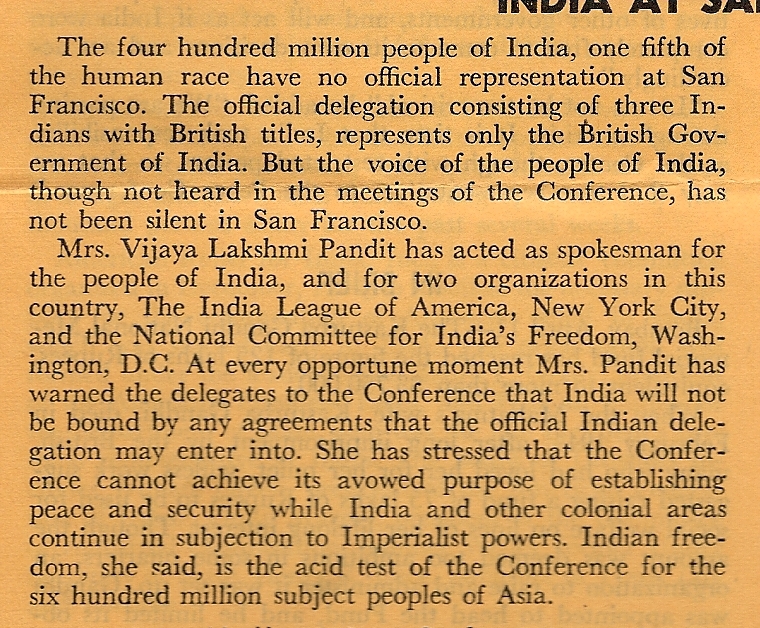“Franklin D. Roosevelt”

India Today, Vol. 6, No. 1, April 1945
Full page on “India and San Francisco Conference,” denouncing the appointment Sir Ramaswami Mudaliar, Sir Firoz Khan Noon and Sir V.T. Krisnamachari as the Indian delegates to the conference.
- The India League sent the Secretary of State a resolution expressing this sentiment, stating: “we share in the protests already voiced in India against the choice of three delegates from India who in no sense represent the people of the country but are merely appointed by the foreign power which rules them.”
Full page on “Indian Newspaper Correspondents and San Francisco,” reporting on how the British Government rescinded their original ban on the attendance of Indian correspondents due to “the pressure of public opinion both in this country and in India.”
- On April 16, J.J. Singh sent a telegram to the Secretary of State, which read: “As an American organization, believing in freedom of the press, we are greatly disturbed to learn…that the Indian Government has required the three Indian newspaper correspondents who were selected by the All India Newspaper Editors’ Conference, to abandon their plans of going to San Francisco.”




